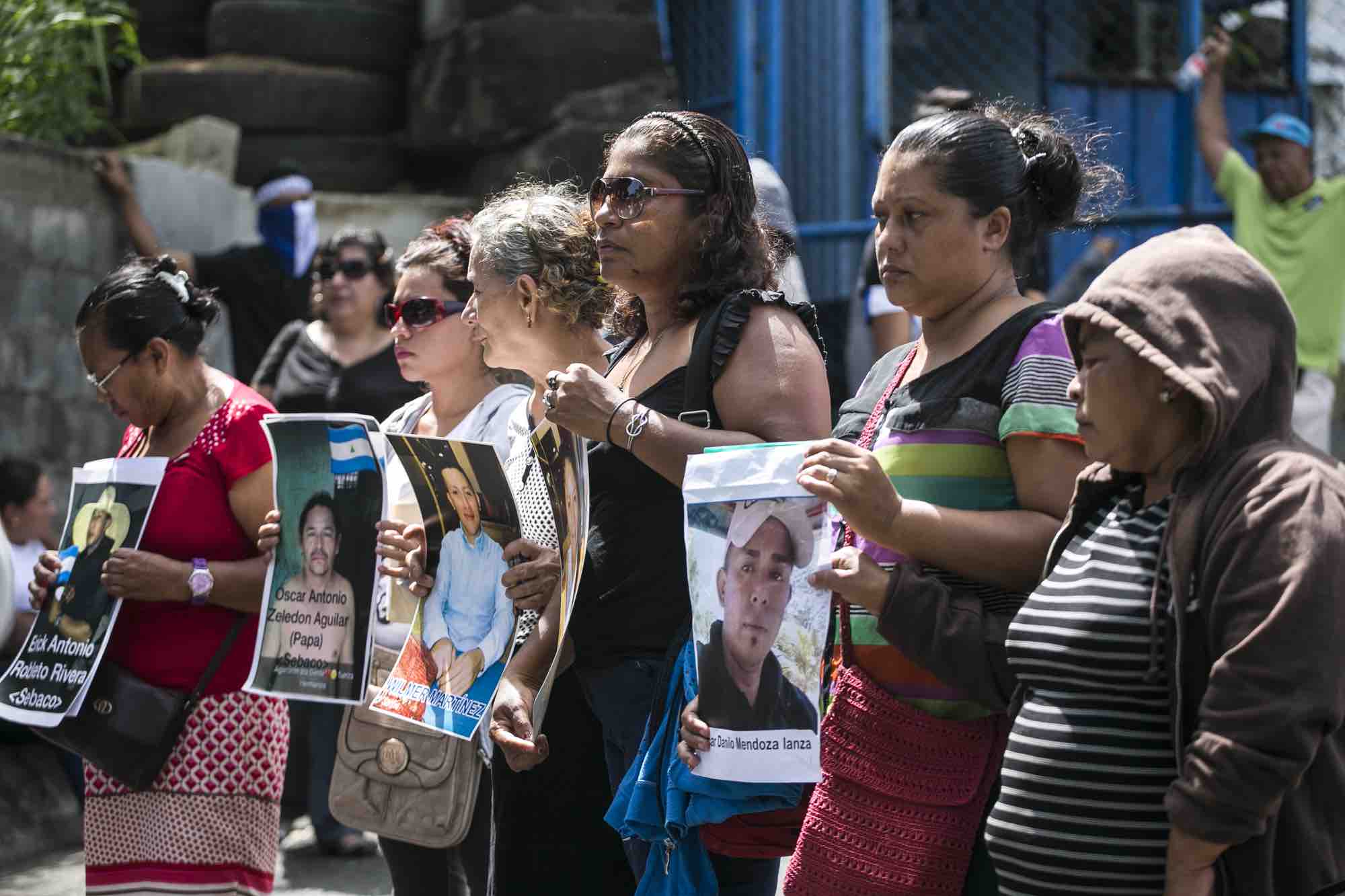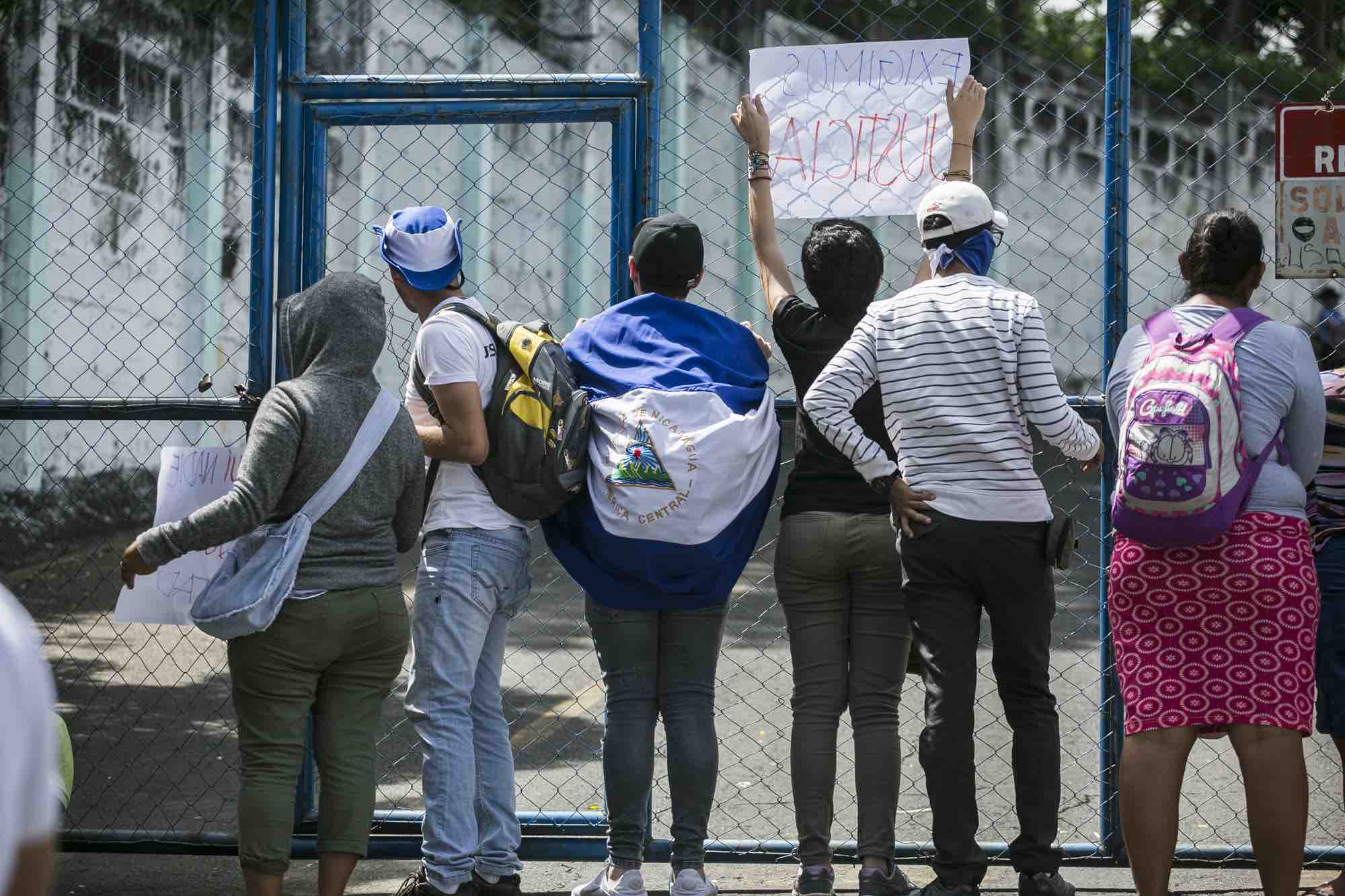El Chipote Has Long Been a Symbol of Oppression
Photo by Jorge Mejía Peralta (Creative Commons 2.0 Attribution Generic License), via Flickr
Outside of the blue fences, you can hear their cries. You can feel their anger. You can see their fear. They – mothers, fathers, friends, and others – know what happens inside El Chipote, a Managua prison where Nicaraguans are routinely tortured. In the last year or so – since people began protesting President Daniel Ortega’s pension reforms (which he dropped) and his government – many have found themselves incarcerated across the country for speaking out against the state. Some have ended up in El Chipote, which has long been a symbol of oppression.
Located in Loma de Tiscapa, El Chipote – formally known as the Dirección de Auxilio Judicial – wasn’t always what it is today. During José María Moncada’s presidency, there was a jail built alongside the former Palacio Presidencial. But the jail was destroyed in the 1931 earthquake. Three years later, Anastasio Somoza García had La Curva constructed. Underground, political prisoners were tortured.
The jail truly grew in infamy during Anastasio Somoza Debayle’s tenure. As the movement to remove him from power grew, many of his opposers ended up in La Curva. This is how well-recognized figures who fought for a better Nicaragua ended up tortured in this jail. And now a new generation is facing extreme punishment at El Chipote for protesting the government – following in the footsteps of the young Ortega, who is now suppressing others.
The government has arrested Alex Vanegas, known as the “marathon” protester, several times for speaking out about the injustices his country faces. He spent at least two months in El Chipote, which human rights organizations have called inhumane. “They are smelly, dark, hot, and full of rats and mosquitoes,” Vanegas, who has since fled to Costa Rica, told BBC Mundo about the cells. “There was no light in the cell. That’s why I’m losing my vision.”
He was forced to sleep on the wet floor of a small cell, where there was a small hole that served, essentially, as a toilet. Vanegas only had potable water at dawn.
Bayardo José Siles Rodríguez describes his time in El Chipote more bluntly. “I was rotting,” he said, according to The Tico Times. He spent days in his underwear without showering.. He ended up getting fungal skin infections. He wasn’t subjected to violence, however. “They did not hit me, but I was always afraid because others were suddenly taken out, hit and you could hear terrible screams…,” he said. “They never took me out or interrogated me.”
Photo by Jorge Mejía Peralta (Creative Commons 2.0 Attribution Generic License), via Flickr
Other prisoners refuse to eat the food at the prison, for fear that they will be poisoned. Instead, they wait until their loved ones bring them sustenance. Those whose families don’t live nearby rely on the kindness of someone like 51-year-old Delia Valdivia Blandón. Since October, she has visited several prisons, including El Chipote, to deliver food to more than 30 Nicaraguan prisoners.
Aside from the unsanitary conditions, Vanegas also faced both psychological and physical torture. “They told me they were going to kill me,” he added. “They woke me up at dawn to ask me who paid me to run, to ask why I protested against el comandante.”
A woman, who told him that it wouldn’t make a difference if he ran in protest 20 times around the world, hit him in ribs with her fists.
For student leader Juan Pablo Alvarado Martínez, El Chipote was months of traumatic experiences. Eventually, he went in for an X-ray and learned that the bones in his shoulder and his ribs were fractured because of all the physical abuse.
El Chipote changes people. It either drives more fear into them, it traumatizes them, or it makes them lose their fear altogether. What Alvarado experienced only strengthened his resolve to fight for Nicaragua.
“I lost that fear and I don’t care if I end up jailed again,” he said “They already hit me and tortured me psychologically. I’ve lost sleep, and I’ll continue to march for Nicaragua.”


